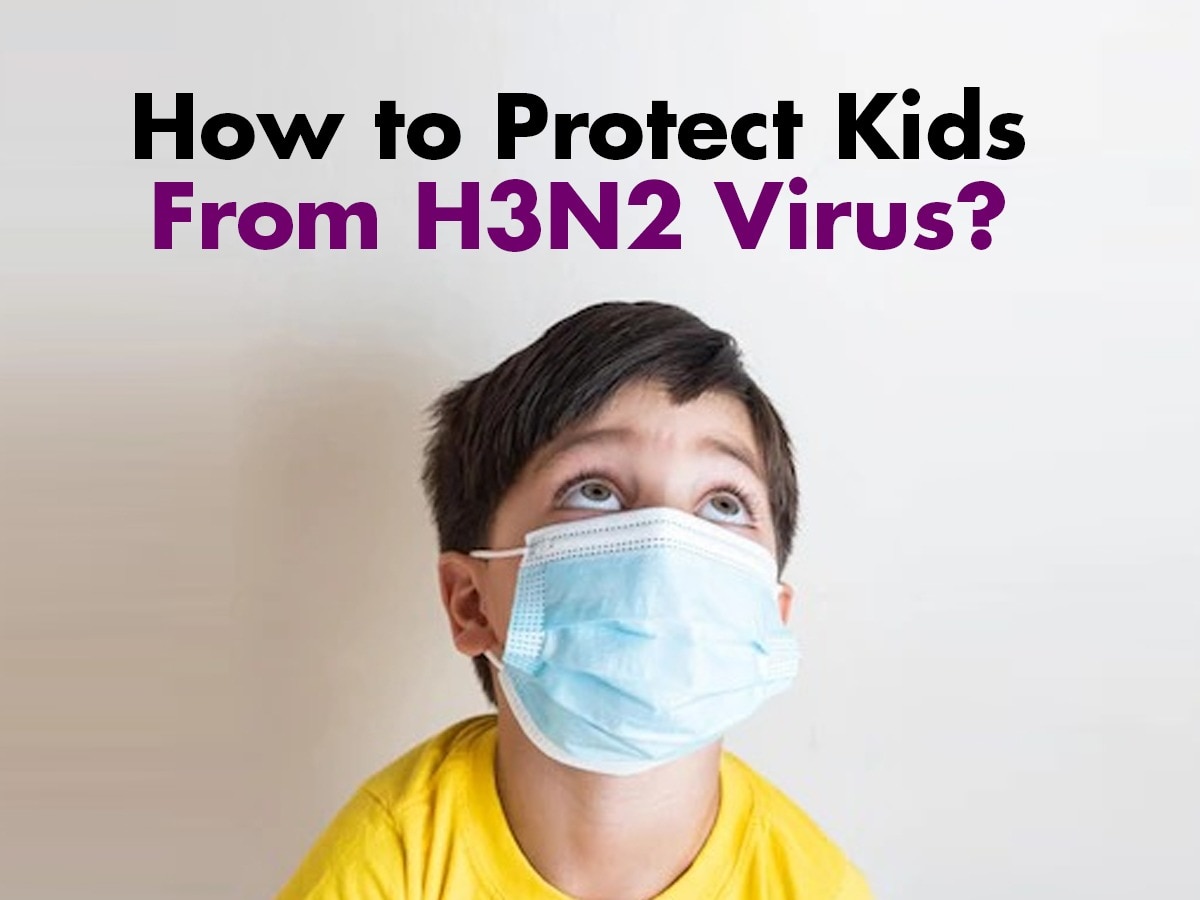Doctors have reported a worrying increase in H3N2 cases among children, especially those under 5 years of age.
H3N2 influenza is a subtype of the influenza A virus that is causing difficulties not only for adults but also for children. You will be surprised to know that a large number of children get sick due to this serious infection. According to media reports, infants and pre-school children have also been admitted to ICUs in Delhi and Pune.
Symptoms of the H3N2 virus in children
Symptoms seen in children are colds, cough, fever, runny nose, stuffy nose, body aches, sore throat, chest tightness, respiratory problems, diarrhea, headaches, vomiting, dehydration, lethargy, weakness, sneezing , wheezing. In some cases, fever can be as high as 104-105 F, vomiting, loose movements, cough/cold, and in extreme cases, seizures and drowsiness. Symptoms usually last 5 to 7 days. A persistent cough may also be seen in some patients that lasts longer. Children can also get pneumonia, making it hard for them to do their daily activities, and some may need to be hospitalized if they don’t get proper treatment. Here are some surefire tips to keep the H3N2 virus at bay. Parents, please make sure your child is following these essential steps.
How to protect children from the H3N2 virus?
- Wash your hands correctly without fail: The child should wash their hands after using the bathroom, before eating, after touching any surface or object, and before touching their face or nose. Be sure to wash your children’s hands for at least 20 seconds and rub them properly.
- Wear a mask: If you go to crowded places, you should wear a mask around sick people, as there is a risk of transmission of a virus that can make children sick.
- Cover your mouth when coughing or sneezing: Cover your coughs and sneezes and properly dispose of the tissue after use.
- Avoid coming into contact with other children: The child must not touch anyone at school. He does not share books with any child and avoids shaking hands and hugging the child.
- Don’t be around sick people: If someone in the family or neighborhood is sick, avoid coming into contact with that person. It is better to limit visits at home. In addition, it is not advisable to go to crowded places. It is the need of the hour to get a flu shot as recommended by the doctor. Don’t miss it at all costs.
- Clean frequently touched surfaces: Parents must ensure that the child is safe. They should clean frequently touched surfaces such as doorknobs, faucets, furniture, household objects, and countertops. Make sure children do not touch their faces after touching any object or surface.
(Entries: By Dr. Vrushali Bichkar, Consultant Pediatrician and Neonatologist, Motherhood Hospital, Lullanagar, Pune)
$(document).ready(function(){
$(‘#commentbtn’).on(“click”,function(){
(function(d, s, id) {
var js, fjs = d.getElementsByTagName(s)[0];
if (d.getElementById(id)) return;
js = d.createElement(s); js.id = id;
js.src = “//connect.facebook.net/en_US/all.js#xfbml=1&appId=178196885542208”;
fjs.parentNode.insertBefore(js, fjs);
}(document, ‘script’, ‘facebook-jssdk’));
$(“.cmntbox”).toggle();
});
});
